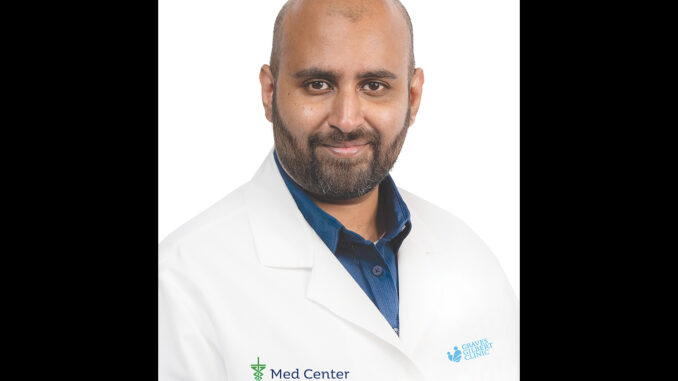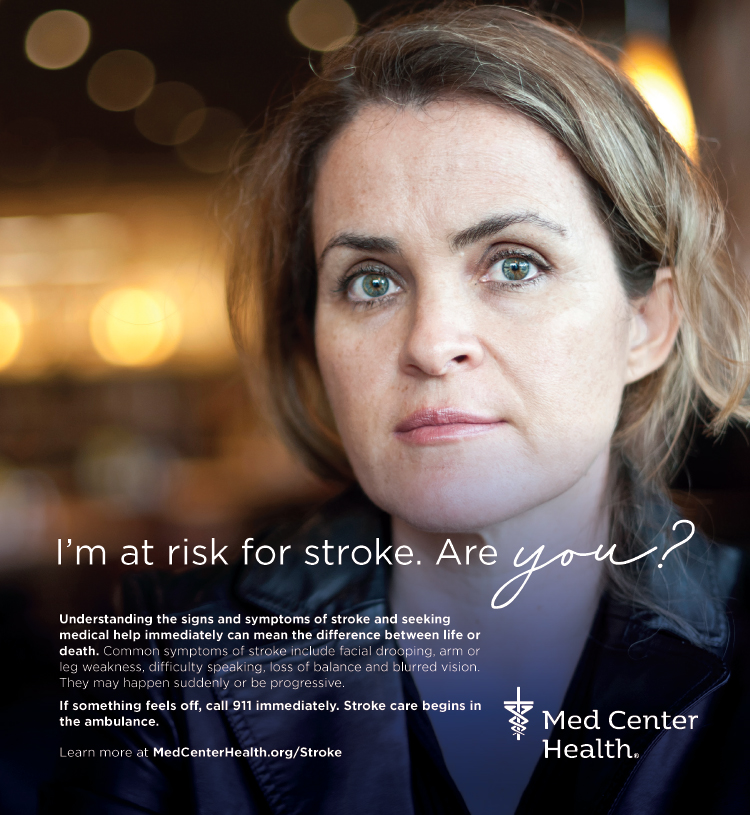
Approximately 500,000 Americans have been diagnosed with Parkinson’s disease (PD), but given that many people go undiagnosed, the actual number is likely to be much higher. Some experts with the National Institute of Neurological Disorders and Stroke estimate that as many as one million Americans have PD.
PD is a movement disorder of the nervous system that worsens over time. As nerve cells (neurons) in parts of the brain weaken, are damaged, or die, people may begin to notice problems with movement, tremors in hands, stiffness in the limbs or the trunk of the body, or impaired balance. As symptoms progress, people may have difficulty walking, talking, or completing other simple tasks. Not everyone with one or more of these symptoms has PD, as the symptoms appear in other diseases as well.
“Parkinson’s causes a slowing down of movements as well as body stiffness or rigidity,” said Dr. Haroon Majoka, neurologist at Med Center Health. “Those are the main things you’ll be looking for. You can also start to notice tremors, especially in the hands. They can be resting tremors, which can go away when you try to focus on them or try to move your body. Also, Bradykinesia is one of the cardinal symptoms of PD. Bradykinesia means that all of your movements are becoming slower and smaller, so your handwriting becomes smaller, your voice becomes softer, and your walking becomes slower.”
If you or someone you know is dealing with a combination of these symptoms, you should speak to your primary care provider. If your provider believes your symptoms are consistent with that of a person suffering from PD, consulting with a neurologist can be helpful.
There is currently no cure for PD. However, research is ongoing and medications, surgery, or therapy can often provide substantial improvement with symptoms. Neurologists at Med Center Health are able to treat and care for each patient individually with the proper combination of medicines like Carbidopa and Levodopa, potential surgery options, and physical and speech therapy. With the combination of all of these treatment options, patients with PD can live much fuller lives with symptoms often being controlled extremely well.
“The improvement really can be dramatic,” said Dr. Majoka. “If a patient receives the right medication, is provided the correct therapy and given the proper resources, he or she can see a marked improvement. Left untreated, PD can worsen over time, but a patient’s quality of life can be greatly improved with medication, therapy, and in very advanced stages with non-medication options which can include surgical options like deep brain stimulation.”
To learn more about Parkinson’s disease and Med Center Health Neurology, visit: MedCenterHealth.org/Neurology.
-submitted by Med Center Health




